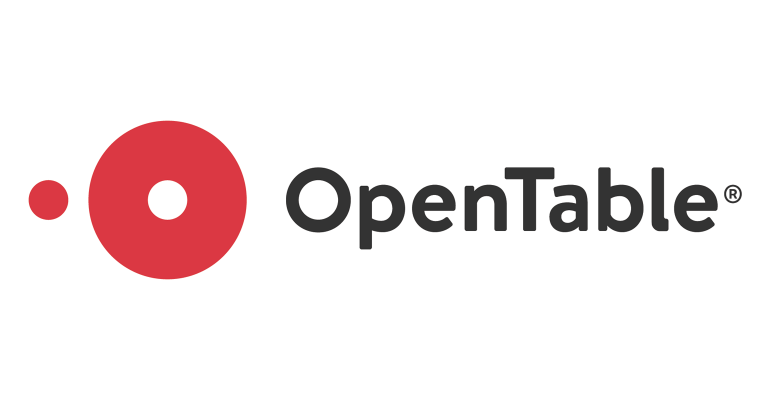OpenTable on Friday updated its client agreement with restaurants to solidify control over the data collected as guests book reservations, sparking an outcry by rivals and restaurant operators who increasingly see such data as marketing gold.
The company said the move is an attempt to comply with looming consumer data privacy laws. But the resulting dispute is an early indicator of the battles that will likely be triggered as restaurant tech players tighten controls on the valuable data they collect.
Steve Hafner, CEO of OpenTable and sister digital travel service Kayak, both owned by Booking Holdings Inc., said the updated client agreement was necessary to maintain security and ensure the global reservations company is in compliance with upcoming privacy laws, including the California Consumer Privacy Protection Act scheduled to go into effect next year.
Effective March 15, OpenTable’s updated client agreement impacts users of the cloud-based GuestCenter services, which includes about 30,000 restaurants across the U.S. Under the agreement, OpenTable is reserving the right to block access to data when consumers have specifically directed the company not to share it with the restaurant or another third party. Consumers are offered the option of opting in to data sharing whenever they make a reservation through OpenTable.
“What we’re talking about is consumer data,” said Hafner. “If they give an email address, cell number or maybe credit card information, if a consumer doesn’t want to pass that on to a restaurant, or if they delete their OpenTable account, we have to give them the ability to own that data and remove it from our system, and remove it from third-party systems too.”
Restaurant operators, however, said they see the move as an attempt by OpenTable to hold useful data “hostage,” saying it would specifically disrupt their ability to work with integrated services like SevenRooms, a rival booking and table management company.
Arthur Li, chief financial officer for the New York-based Altamarea Group, which operates 13 concepts, including Marea, Morini Ristorante and Nicoletta Pizza, said, “It doesn’t matter whether OpenTable or we own that data. We just want to be able to deliver a certain level of hospitality with as much data as possible.”
Li said his group uses SevenRooms for customer relationship management. With SevenRooms, the group has created a database of clients pulled from OpenTable, but also guests who book reservations direct, for example, or through private events or delivery.
Over the past two years, Altamarea Group has done more than $500,000 in business with OpenTable, he said, and that relationship will continue to be valuable.
But Li said he is concerned about being forced into “overreliance” on OpenTable, which was once the dominant player in the digital reservations world.
“Now there are many other ways for diners to discover and make reservations with us, including Google, Instagram, our website. So we are trying to build those direct client relationships without OpenTable,” Li said.
The San Francisco-based OpenTable boasts integrations with nearly 600 brands, including Amazon Alexa, Facebook Messenger, Google, Instagram and TripAdvisor.
Hafner said the problem with SevenRooms specifically was that restaurants were giving out login credentials to OpenTable “and SevenRooms was coming through those credentials and sucking down all the information we have” on diners, including consumer data that goes beyond the specific reservation transaction.
In the past, OpenTable did not have an agreement with SevenRooms, which meant SevenRooms was not obligated to adhere to consumer requests to opt out of data sharing, as will be required under the privacy laws to come.
Hafner said an agreement was worked out with SevenRooms late Thursday, which would impact roughly 400 OpenTable restaurant clients that also use SevenRooms.
“It was never our intention to deny any of our customers access to SevenRooms. They provide a great service,” he said. “SevenRooms will now have direct access to our systems on a platform level. Their systems will be able to talk to our systems directly, which will actually be much better integration than currently exists.”
Hafner did not offer details of the costs associated with that agreement, but the Wall Street Journal reported that OpenTable will charge existing clients a fee of $250 per restaurant per month for use of both systems. New OpenTable users will be charged $1,000 a month for each location to use both systems.
SevenRooms officials confirmed they have received authorization to access OpenTable on behalf of restaurant operators that enter into an agreement about data access. “The terms of that access for customers are at the sole discretion of OpenTable and have not been disclosed to SevenRooms,” the company said in a statement.
Li said Friday he has not seen any details from OpenTable directly indicating what his company’s integrated services would cost.
Joel Montaniel, CEO of SevenRooms, meanwhile, declined to comment beyond this statement:
“SevenRooms was founded to provide open, connected technology that enables restaurants to build stronger relationships with their guests and operate more effectively. We are proud to work with thousands of operators around the world, from neighborhood restaurants to international, multiconcept hospitality groups. We welcome collaboration and integration with all of their technology and marketing partners, including OpenTable, to help restaurants run their businesses and provide outstanding customer service.”
Contact Lisa Jennings at [email protected]
Follow her on Twitter: @livetodineout





